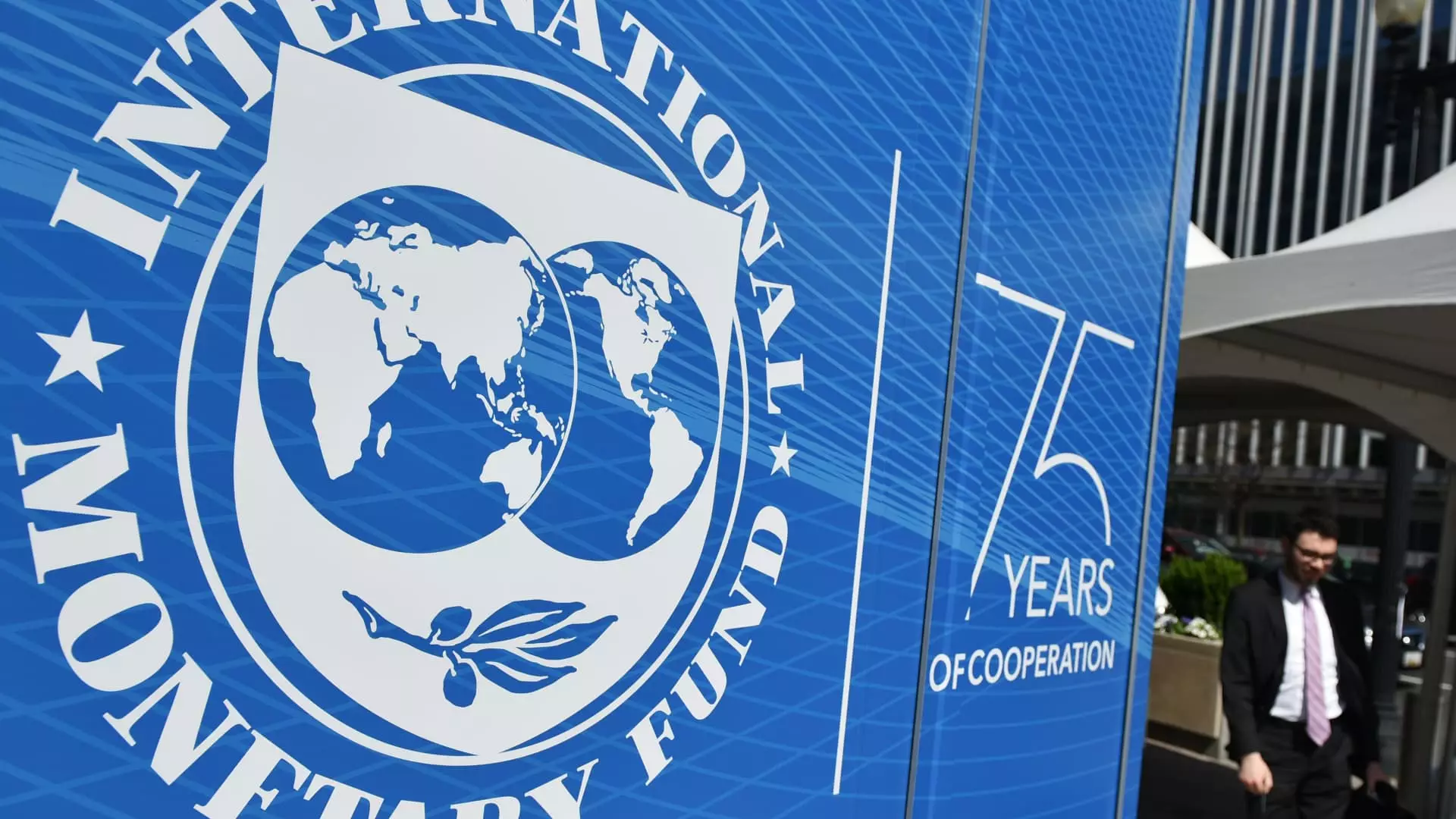The International Monetary Fund recently issued a warning regarding the rising risks of inflation, which could potentially impact the Federal Reserve’s decision to cut interest rates multiple times this year. The IMF’s latest World Economic Outlook update indicated that the global disinflation trend is slowing down, leading to potential obstacles in the future. The report also highlighted that the United States is falling behind other major economies in terms of implementing quantitative easing measures.
Despite market expectations of multiple rate cuts by the Federal Reserve, the IMF’s chief economist, Pierre-Olivier Gourinchas, suggested that a single rate cut would be more suitable for the current economic conditions. Gourinchas pointed out that the persistent wage inflation and service sector growth could complicate efforts to lower inflation. While he acknowledged that strong wage growth and service sector expansion are positive indicators, they also pose challenges for the U.S. economy.
The IMF’s cautionary outlook comes after the latest data from the U.S. Labor Department revealed slower consumer price index growth, raising concerns about the overall inflation rate. As a result, the IMF has revised its growth forecast for the U.S. economy, lowering it by 0.1 percentage point to 2.6% for the year 2024. The decrease in growth expectations is attributed to cooling consumption trends and slower-than-expected economic growth at the beginning of the year.
The IMF’s warning about increased inflation risks and its recommendation for a single rate cut from the Federal Reserve have significant implications for monetary policy decisions. While market expectations point towards multiple rate cuts, the IMF’s focus on potential inflationary pressures and economic growth challenges suggests a more cautious approach. The diverging views between the IMF and market participants highlight the complexity of navigating a changing economic landscape.
Overall, the IMF’s latest update serves as a reminder of the delicate balance required in managing inflation, economic growth, and monetary policy. The warning about rising inflation risks underscores the importance of closely monitoring economic indicators and adopting a strategic approach to policy decisions. As global economic conditions continue to evolve, policymakers will need to remain vigilant and adaptive to effectively address emerging challenges and opportunities.

Leave a Reply